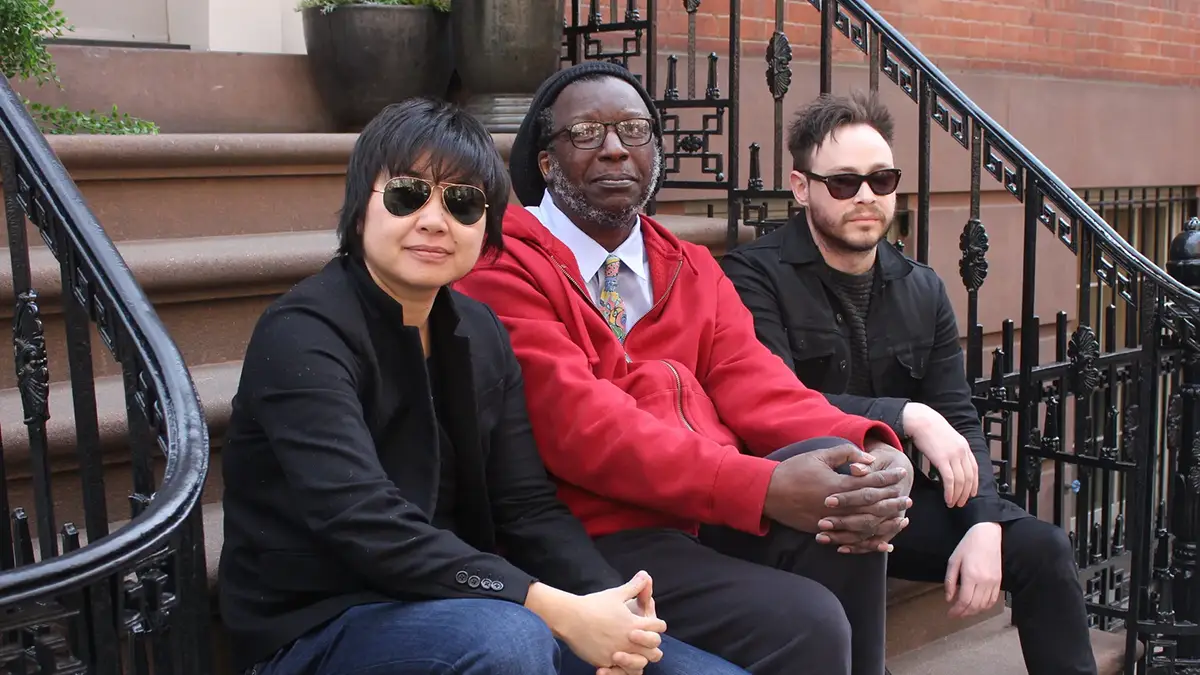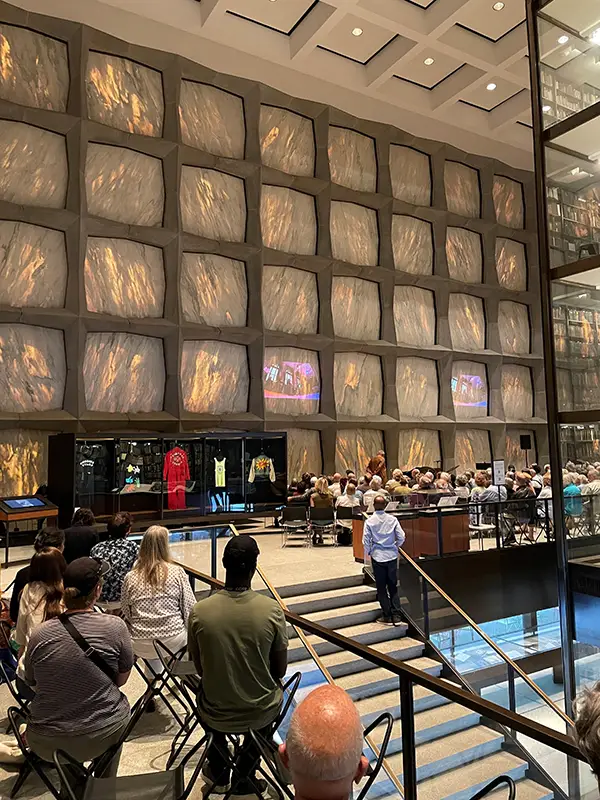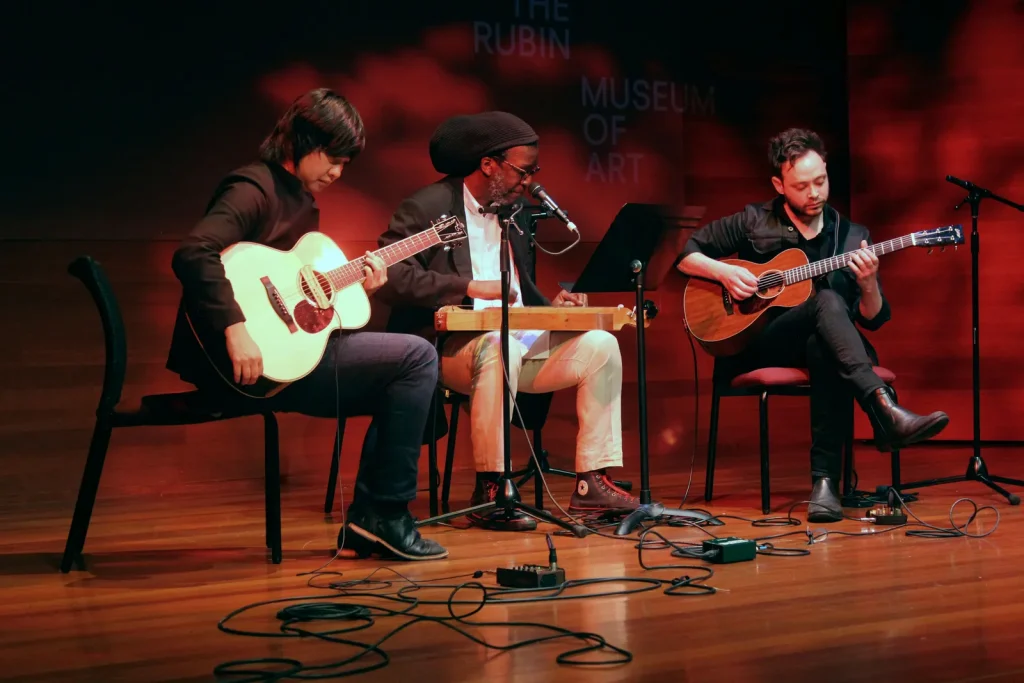Cornelius Eady Connects Students to a National Community of Working Writers

by Randall Brown
Professor and Chair of Excellence Cornelius Eady is also the cofounder of the Cave Canem Foundation, established in 1996 to remedy the underrepresentation and isolation of African-American poets in the literary landscape.
Cornelius Eady’s summer finds him traveling to oversee the filming of a dance production in Montreal, Canada, based on his work and preparing to release his musical trio’s latest album. He keeps pace with these long-standing roles as an international poet and recording artist, but the success of his students still gives him the biggest kick.
“It’s what I call the ‘catnip’ of teaching,” said Eady, professor and Chair of Excellence in the UT Department of English. “Why do we keep coming back, like catnip?”
He shares the story of an international student from his spring poetry workshop whose journey of confidence through cultural and language barriers impressed him.
“Last year, she was very shy,” he said. “But she hung in there. For our last workshop, she volunteered to be the first one to speak. The transition from being very shy to being more confident as a person and as a writer—realizing she had a space in that workshop—that’s what I hopefully bring for them.”
Eady also brings in other poets for his students to share the space with—colleagues whom he has come to know throughout his career. These professional writers meet with his classes via Zoom to offer live, personal dialogues.
“The class has to study the poet and come up with an interview question—and it has to be a craft question,” he said. “Then the guest poet leaves them with a writing prompt for next week’s class.”
Through his own writing prompts, Eady likes to get students “out into the world”—writing poetically about their lives in Knoxville, for example. Overall, he wants the workshop experiences to help students create part of their “future selves” as writers.
“They are creating a poetic persona that they will carry for the rest of their writing career,” said Eady. “You get to see them put the components together or help them do it the best way they possibly can—without getting in the way or interfering. That’s the catnip of it: Mission accomplished.”


Eady’s ongoing mission as a full-time poet keeps him engaged and active in a wide repertoire of artistic endeavors beyond the classroom. “Mercy,” his collaboration with Montreal’s Mouvement Perpétuel dance company, shines a light on the life and work of early American poet Phillis Wheatley, who was the first enslaved person in the American colonies to have a full-length book published. His poems explore her unique experience within both slavery and freedom.
“The cycle tries to understand what it was like to lose one language and take on another for survival—what that must have felt like,” he said.
Two of Eady’s musical collaborations will also be released this summer, including a first-ever cast recording of the 1999 opera “Running Man,” which was a finalist for the Pulitzer Prize for drama and won an OBIE for composition. It is a story told through jazz, opera, and chamber music about the disappearance of a young Black man.
“I wrote the libretto for the music by composer Diedre Murray,” he said. “We’ve done maybe four pieces together, but this is the most famous for us.”
His trio, the Cornelius Eady Group, will release “Painting” on June 22. Eady’s poetic lyrics cover both political issues and daily life, set to the music of guitarists Lisa Liu and Charlie Rauh.
“I’ve been writing music since I was a kid. I’ve been in a couple bands like everybody else my age,” said Eady. “But I stopped doing it for a while for a number of reasons—one was that I started doing operas with Murray, a genius composer.”
An offer to sell his collected papers, which are now at Yale University’s Beinecke Rare Book and Manuscript Library, led him to peruse some of his older demo recordings.
“I started listening to them and wondered, ‘Why did I stop doing that?’” said Eady. One inspiration led to another, and he soon had a steady band going on.
“I played at the Big Ears Festival, and I just played at the New Orleans Poetry Festival two weeks ago, which was a real kick,” he said. “Everyone has a certain point to decide they’re never going to be a rock and roll star, so they move on. But the music kept coming. Charlie and Lisa have been great companions for me over the last 10 years.”
Whether in his role as a recording artist and performer or his role as poetry professor, Eady hopes to model the realistic working life of a writer for his students—encouraging them to find their own kind of space and career.
“I like to think that the model that I bring to them isn’t going to threaten them, isn’t going to make them think they have to be somebody else in order to figure out who they are,” said Eady. “I want them to build their space and inhabit their space. The victory is the writing itself; the victory is the life itself.”